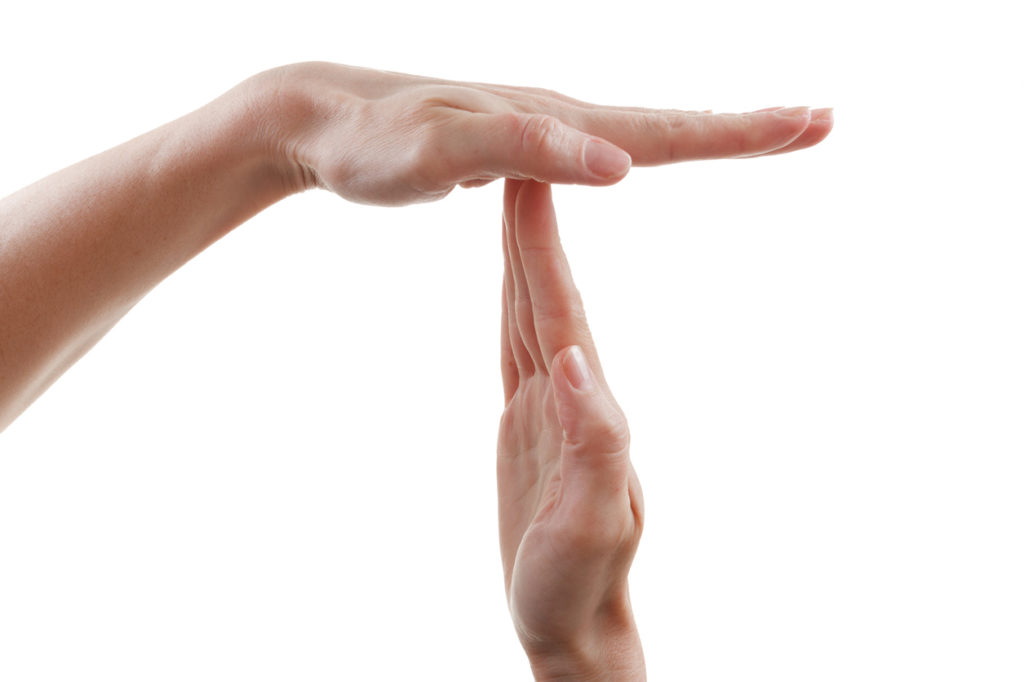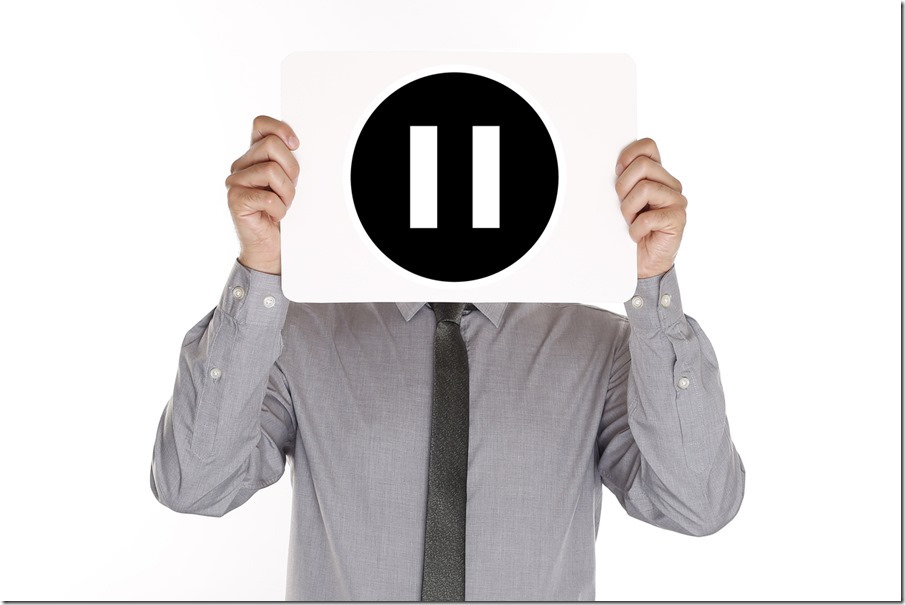5 Reasons To Pause During Your Media Interviews

Composer Truman Fisher once observed that:
“The pause is as important as the note.”
His wisdom applies not just to music, but to media interviews, too. Pauses offer tremendous benefits for speaker and audience alike — but only a handful of the thousands of speakers whose interviews I’ve reviewed have taken full advantage of them.
In fact, before starting many practice interviews, the final reminder I offer clients is this:
Remember that it’s okay to pause before answering questions in this format.
That reminder, fresh in their minds for a few moments, typically recedes quickly once the camera’s red light appears and their physiological symptoms of stress begin to accelerate.
Pauses also disappear because our culture tends to stigmatize them. In everyday life, we often view silences as “dead air” that can lead our conversation partners to wonder whether we’re a bit dimwitted. If a boss asks you for the status of a report and you go silent for eight seconds, it would likely make your boss wonder what caused your delay in responding.
But for taped formats — print interviews and edited radio and television interview s— your pause usually won’t be used or noted in the story (I’ve noted a few exceptions below).
The Power of the Pause
Even if you think you know the answer to the question right away, I suggest you pause for the five reasons you’re about to see.
1. Pauses eliminate the “thinking while talking” syndrome
When people begin speaking the moment the question is asked, they often find their way to the answer while talking. It’s common for people to start talking, find their thought about halfway into their response, and deliver a terrific answer from that midpoint to the end. Pausing allows you to jump in at that midpoint, eliminating the buildup to your “real” answer. If you want to give a better answer, stop talking for a few seconds. Don’t deny yourself the opportunity to think for an extra few seconds.
2. Pauses improve your eye contact
Word retrieval and eye contact work in tandem. When we try to access a memory or download a phrase, we often break eye contact and look away. That loss of eye contact can signal discomfort to a television audience (or worse)—but only if it occurs while you’re speaking. If you pause before speaking, you’ll be able to complete your “downloading” in advance, allowing you to deliver a more confident and locked-in response when you begin. One technical note: If you look away while thinking, look back up and wait a beat before starting your response; it’s difficult to edit an answer if you begin speaking “on the move” while lifting your head back up.
3. Pauses make for easier edits
Many interviewees detect where the reporter’s question is heading and jump in to begin answering it before the reporter has finished. Those brief moments of crosstalk can make for a difficult radio or television edit if the person interviewing you won’t be heard or seen in the story. If the goal is to deliver a clean quote, force yourself to pause for a beat before responding.
4. Pauses allow you to catch the full question
Reporters sometimes end a question with a twist, asking something different than you originally anticipated. If you turn off your brain the moment you think you caught the question, you might be caught off guard by an unanticipated curveball—or miss it altogether.
5. Pauses prevent you from signaling a pattern break
Imagine that you know the answer to the first 10 questions and can answer them immediately without a pause. But the 11th question—a more aggressive one—catches you by surprise, forcing you to pause. By doing so, you’ve just signaled to the reporter that something made you uneasy—and good reporters will ask probing follow-ups to understand why. But if you had already established a pattern of pausing after the first 10 questions—even when you didn’t need to—nothing will appear different when you actually need a pause for the 11th one.
 How long should you pause?
How long should you pause?
There’s no magic number. Pausing for just a couple of seconds is often sufficient to take advantage of the five points listed above. In some cases, I’ve seen spokespersons pause longer—and I’d rather someone get their answer right than rush into it and get it wrong. If an eight-second pause results in a stronger answer, pause for eight seconds.
Three times not to pause
Although reporters can note your pause in any news story, it’s unusual for them to do so unless:
- You’re in a crisis situation and your silence suggests a lack of preparation, evasion, or incompetence.
- You’re the subject of a profile piece, and your long pauses could be noted as indicative of your thoughtfulness (good) or desire to be in control (not as good).
- You’re giving a live or live-to-tape interview, during which long pauses can make you seem slow on your feet. But even if you can’t pause for several seconds during a live exchange, at least give yourself the benefit of hearing the full question before jumping in to respond.



Brad, this is a wonderful piece! I teach the power of the pause in my speech coaching, but I learned something here. Item #4 is valuable to remember, and #5 is brilliant. Thanks so much.
Gary,
Thanks very much – that means a lot!
Item #5 can be subtle rather than pronounced; even pausing for a beat or two can be enough to benefit from its advantages. I suspect it’s a device that works equally well in the context of a public speaking Q&A session, too.
Be well,
Brad
[…] article originally appeared on the Mr. Training blog; reprinted with […]